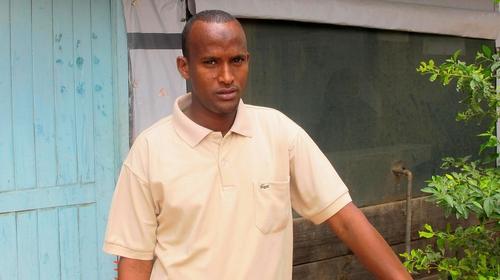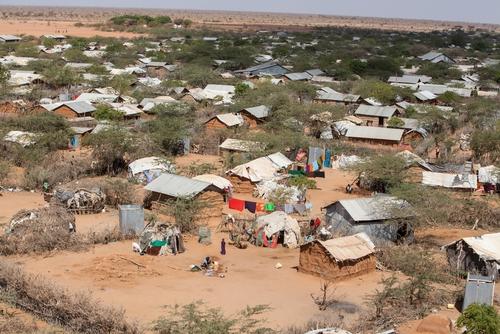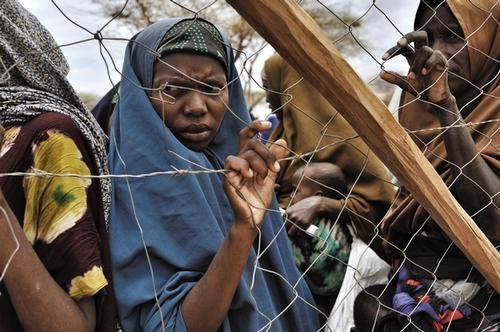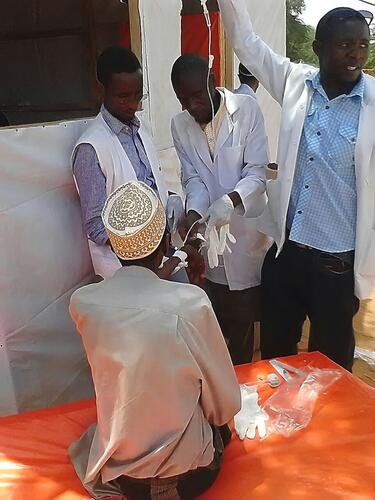Hassan Sugal Takoy was born in Kismayo in Somalia in 1987. When he was five years old, he and his family fled the war and arrived in Dagahaley refugee camp in Dadaab, Kenya. Hassan began working with MSF in 2011 as a translator. He is now a social worker. Here, he tells his story of fleeing war in Somalia and his reaction to the recent announcement by the Kenyan Government that the Dadaab camps will close by November 2016.

We had to flee Somalia in 1992, when I was five. I cannot remember well what was going on but I very vividly remember the fighting due to the civil war.
There were rumours that women were being raped. My mother would hide in the bushes because of the threats from the men. Once, some men found her and beat her, leaving her unconscious.
My father was killed when we were trying to leave. He was attacked by unknown armed men. Some of our neighbours were also killed, and all the livestock were taken. My mother took us to another village that was calmer. There she heard that people were fleeing to Liboi, a Kenyan border town, so we went. We stayed there for over 10 days after which we were relocated to Dagahaley camp in Dadaab.
I remember receiving a tent and utensils. Our life as refugees had begun.
It was a tiring journey, and we were afraid. Everybody was hungry and my mother was sad. It was very hard to see her cry every time she would talk to us about her experience fleeing the war in Somalia. I would have to leave our tent to go and cry. But I knew I had to be strong for her. I would come back and hold her hand to comfort her. Our neighbours would join us and comfort us, but my mother was suspicious of everyone due to the death of her husband. She was afraid, and thought that someone among those fleeing had killed her husband. This made it difficult for me and my family to get support.
It was a painful time for me and my family. No humans should live like this: fleeing war, hunger, and hatred. It is a bad life.
No humans should live like this: fleeing war, hunger, and hatred. It is a bad life.Hassan Sugal Takoy
In 2003, my mother passed away. At one point she complained of chest pains, and a few months later she had extreme headaches. Her health was deteriorating daily to the point that she was vomiting blood. She was bedridden for about three months and she died. I was only a teenager. She did not have to die, she was only 50. Her death left us lonely.
My reaction to the closure announcement was one of frustration, shock and fear. I was freaked out, and I could not move. If I have to go back, I feel I will not be safe. I am afraid I could forcefully be recruited to join an armed group. I am extremely scared.
I do not wish to die. I am only 29 years old.
The closure will affect every single refugee, and especially the old men and women. Some have high blood pressure, so going back to Somalia will worsen their medical conditions. They’ll easily die. The health infrastructure is not stable enough to cater for pregnant women and prevent maternal deaths. I wonder if children will get all their vaccinations. Is the health system equipped to cater for outbreaks such as measles? Many refugees are being returned and this is certainly a potential breeding ground for contagious diseases.
I would like to tell the Kenyan and Somali governments, the UNHCR and the international community to respect the rights of humans and refugees. Being forced to return is inhuman.
Dagahaley is the place I know as home.





